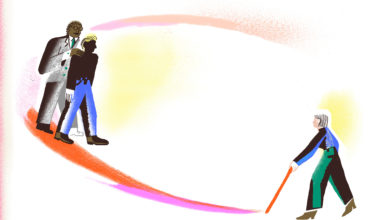Lithium is a commonly prescribed mood stabilizer used primarily to treat bipolar disorder, which affects an estimated 2.3 million Americans. It regulates sodium transport in nerve and muscle cells, which affects mania. While Lithium is effective in many cases, it does come with the risk of potential side effects — some severe — ranging from memory problems to kidney damage. However, when taken as prescribed and monitored by your doctor, Lithium can be a powerful treatment for psychological conditions.
By understanding how Lithium treatment works, we can better understand its potential benefits and risks in managing our mental health conditions. Keep reading to learn what Lithium is used for, how it works, makes you feel, and what you need to be aware of. With this drug information, you’ll be able to decide if Lithium is right for you.
Psychiatry and prescriptions online
Receive an evaluation and prescription for mental health medication (if needed) from a psychiatry-trained medical provider.
What is Lithium?
Lithium has been used as a reliable and successful treatment for bipolar disorder for more than 50 years. It can help regulate mood swings and manic episode occurrences associated with bipolar disorder. Manic symptoms include aggression, extreme hyperactivity, poor judgment, feeling like you don’t need sleep, and anger.
Lithium prescription online
Get an evaluation and prescription for Lithium from a psychiatric provider licensed in your state.
While Lithium can be an effective mood stabilizer for bipolar disorder, it must be used cautiously.
How does Lithium work?
Lithium has been established as a top-tier mood stabilizer, supplying rapid aid during manic occurrences, decreasing suicide attempts among those suffering from bipolar disorder, and helping to maintain long-term signs.
Lithium alters sodium transportation across cellular membranes, modifying intracellular pathways that regulate neurotransmitter release and receptor function. By modulating sodium transport across cell membranes, it’s widely believed that Lithium reduces inflammation in the brain, thus making it effective for treating bipolar disorder.
How does Lithium make you feel?
When first taking Lithium, some people report feeling nauseous and shaky. It’s also not uncommon to experience dry mouth, diarrhea, or a metallic taste in your mouth. Once the drug begins working, though, Lithium can relieve or eliminate symptoms of mania, allowing you to calm down and regain a sense of control.
Efficacy
In research, Lithium therapy has been found to reduce the frequency and severity of bipolar manic episodes. Some studies show that the drug can reduce symptoms of suicidality.
Lithium Uses
What is Lithium used for? Primarily, Lithium is prescribed to treat mania in people living with bipolar disorder, also referred to as manic depression, and to reduce the intensity when manic episodes do occur.
Lithium for bipolar disorder
When used to treat bipolar disorder symptoms, Lithium can begin working within several weeks. However, it must be consistently kept at the same Lithium level in your body to be as effective as possible.
Lithium for mania
Lithium can also be prescribed to treat mania. It’s effective in reducing the intensity of manic episode occurrences.
Off-label uses
Sometimes drugs are used off-label, which means they weren’t originally intended to treat a condition but have been found effective. Lithium is sometimes used to treat the following mental health conditions off-label:
- Major depressive disorder as a complement to therapy
- Bipolar disorder without a history of mania
- Vascular headaches
- Neutropenia
Pros & Cons of Lithium
| Pros of Lithium | Cons of Lithium |
| Effective in treating bipolar disorder | Risk of Lithium toxicity |
| Available as a low-cost generic version | Need to have regular blood tests |
| Reduces suicide risk | Might not be a good option for people with severe kidney issues |
| Can be a good option for people with liver disease | Increased risk of interaction with other drugs |
| Can stabilize impulsivity & reduce aggressive behavior |
“Lithium can help you feel better and has been proven to stabilize mood and reduce negative symptoms. Conversely, it may also cause negative effects such as weight gain, skin dryness, drowsiness, and fatigue.”
– Talkspace therapist Cynthia Catchings, LCSW-S
Side Effects of Lithium
Taking Lithium for mental health issues can have serious side effects. Though memory problems and confusion are two more common Lithium side effects, they are far from the only ones. Not everyone will experience side effects or will experience different intensity of side effects.
Side effects of Lithium may include:
- Diarrhea
- Nausea
- Dry skin
- Dry mouth
- Increased thirst
- Metallic taste in the mouth
- Mild hand tremors
- Drowsiness
- Gradual weight gain from Lithium
In rare cases, Lithium toxicity can occur. Symptoms might include:
- Feeling light-headed
- Fever
- Shortness of breath
- Weakness or dizziness
- Increased thirst
- Increased urination
- Balance problems
- Memory problems
- Loss of bladder or bowel control
- Seizure
Other serious side effects can include:
- Serotonin syndrome
- Kidney damage
- Hyponatremia
- Pressure in the brain
- Swelling in the eye
- Brugada syndrome
Lithium Dosage
Lithium medication should be taken as prescribed, and dosing instructions must be followed carefully. Lithium is available in capsules or tablets for oral consumption. It comes in extended-release forms and is also available as an oral syrup or compounding powder.
The appropriate dosage of lithium can vary widely depending on the individual and the specifics of their condition. It is typically prescribed within a certain range, which can be anywhere from a few hundred milligrams to over a thousand milligrams per day, but the exact amount is highly individualized. You should always consult with a doctor to get a prescribed dosage.
How to take Lithium
Always take a Lithium drug exactly as prescribed. Do not change your dosage or stop taking Lithium without talking to your doctors. If you’re taking tablets, swallow them whole. You should not chew, crush, or break pills. If you’re taking liquid Lithium, measure the dose carefully using the dosing cup or device you were given.
Additional Considerations
Lithium treatment can cause impaired reactions, so you should not drive or operate heavy machinery until you understand how it might affect you. Make sure you stay hydrated and work out with caution. Ask your doctor about your regular diet and how much sodium you get. Note that any drastic change in sodium intake can alter how Lithium works for you.
“Consult with your doctor about the possible positive and negative effects. Before your appointment, making a list of questions or concerns can help you be better prepared and make informed decisions.”
– Talkspace therapist Cynthia Catchings, LCSW-S
Drug Interactions
There are several drugs — both prescription and over-the-counter supplements — that might interact with Lithium medication. Tell your doctor about everything you’re currently taking, and be aware of the following medications that are known to potentially interact with Lithium:
- Fentanyl
- Buspirone
- St. John’s wort
- Certain migraine medications like triptans
- Tramadol
- Some antidepressants
- Some antipsychotics
- MAOIs
Warnings
If you’re pregnant or thinking about getting pregnant, you must let your doctor know before you start or continue taking Lithium. If you’re taking Lithium, you should use birth control to avoid becoming pregnant.
Be very cautious about taking too much Lithium. Even taking just slightly more than the recommended Lithium dose can cause severe reactions, including Lithium toxicity, which can even lead to death if not treated. If you have any symptoms of Lithium toxicity, contact your doctor or go to the ER immediately.
Symptoms include:
- Extreme drowsiness
- Muscle weakness
- Feeling light-headed
- Blurred vision
- Sudden mood changes
- Irregular heartbeat
- Ringing in the ears
- Slurred speech or confusion
- Seizures
Lithium Alternatives
Despite its potential benefits, Lithium medicine carries certain risks and side effects that must be considered. While it’s known to work well, Lithium therapy isn’t right for everyone. Depending on your condition, symptoms, and how you react to medications, your doctor may believe a different drug would be better.
Some drug alternatives to Lithium medication for bipolar disorder can include:
- Latuda
- Vraylar
- Seroquel
- Symbyax
Another non-drug alternative that’s commonly used includes talk therapy. Types of therapy that are known to be effective in treating bipolar disorder include:
- Cognitive behavioral therapy (CBT)
- Family focus therapy
- Interpersonal therapy
- Milieu therapy
Online Lithium Prescription Through Talkspace Psychiatry
Before taking Lithium, understand the dosage instructions and potential interactions with other medications or substances. Lithium medication can help improve symptoms when taken as directed.
Take the first step toward improving your mental health by signing up with Talkspace for clinically proven mental health and psychiatry services. Our trained, experienced psychiatrists can help you get a prescription for Lithium online if they determine it’s right for you. Talkspace can help you find balance and develop healthier coping strategies with Lithium-based treatments that address your symptoms so you can get back to living life.
Sources:
- Bipolar disorder: Symptoms, treatments, recovery rates. Mental Illness Policy Org. https://mentalillnesspolicy.org/medical/bipolar-facts.html Published January 23, 2019. Accessed March 23, 2023.
- Machado-Vieira R, Manji HK, Zarate Jr CA. The role of lithium in the treatment of bipolar disorder: Convergent evidence for neurotrophic effects as a unifying hypothesis. Bipolar Disorders. 2009;11:92-109. doi:10.1111/j.1399-5618.2009.00714.x. https://www.ncbi.nlm.nih.gov/pmc/articles/PMC2800957/. Accessed March 20, 2023.
- Sarai SK, Mekala HM, Lippmann S. Lithium Suicide Prevention: A Brief Review and Reminder. Innov Clin Neurosci. 2018;15(11-12):30-32. https://www.ncbi.nlm.nih.gov/pmc/articles/PMC6380616/. Accessed March 20, 2023.
Talkspace articles are written by experienced mental health-wellness contributors; they are grounded in scientific research and evidence-based practices. Articles are extensively reviewed by our team of clinical experts (therapists and psychiatrists of various specialties) to ensure content is accurate and on par with current industry standards.
Our goal at Talkspace is to provide the most up-to-date, valuable, and objective information on mental health-related topics in order to help readers make informed decisions.
Articles contain trusted third-party sources that are either directly linked to in the text or listed at the bottom to take readers directly to the source.




